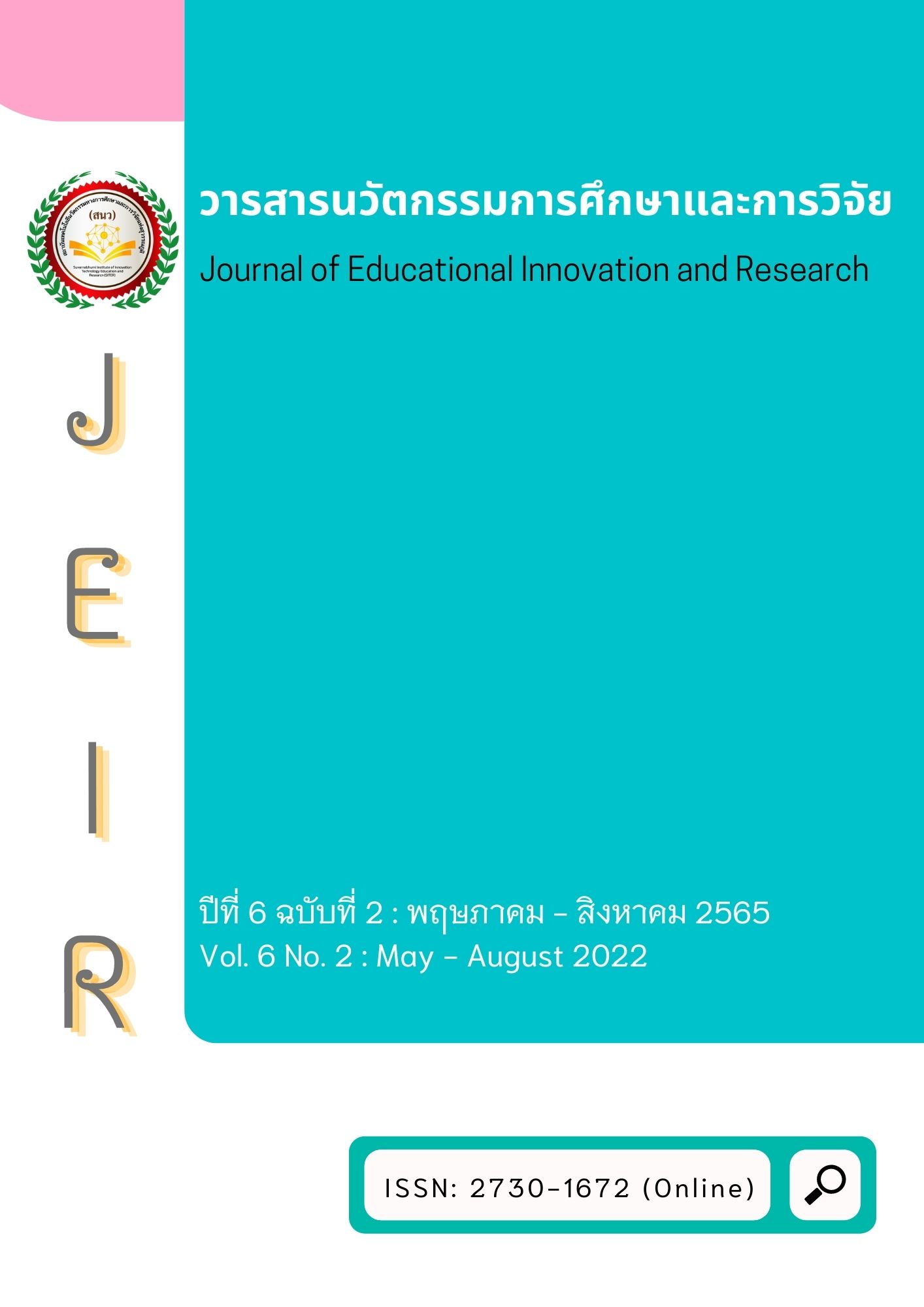วัฒนธรรมทางการเมืองและการมีส่วนร่วมทางการเมืองไทยในยุคแห่งการเชื่อมโยง
Main Article Content
บทคัดย่อ
บทความเรื่องวัฒนธรรมทางการเมืองและการมีส่วนร่วมทางการเมืองไทยในยุคแห่งการเชื่อมโยง มีจุดมุ่งหมาย ศึกษาความหมายวัฒนธรรมทางการเมืองและบริบทการมีส่วนร่วมทางการเมืองในยุคแห่งการเชื่อมโยง ดังนี้ 1) ความหมายของวัฒนธรรมทางการเมืองและการมีส่วนร่วมทางการเมือง 2) วัฒนธรรมทางการเมืองและการมีส่วนร่วมทางการเมืองที่เป็นประชาธิปไตย 3) อภิปรายบริบทการเมืองไทยในยุคแห่งการเชื่อมโยง โดยใช้วิธีการศึกษาจากเอกสาร ตำรา สื่ออิเล็กทรอนิกส์ และวิเคราะห์วัฒนธรรมทางการเมืองและการมีส่วนร่วมทางการเมือง โดยใช้ทฤษฎีของอัลมอนด์ (Almond) และ เวอร์บา (Verba)
และทฤษฎีโลกาภิวัตน์สุดโต่งหรืออภิโลกาภิวัตน์ของ ร็อดริค (Rodrik)
โดยพบว่า วัฒนธรรมทางการเมืองและการมีส่วนร่วมทางการเมือง คือแบบแผน ทัศนคติและความเชื่อของบุคคลที่มีต่อระบบการเมืองของกลุ่มสมาชิกของระบบการเมืองหนึ่ง โดยผ่านกระบวนการขัดเกลาทางสังคมและสภาวะแวดล้อม สถาบันทางสังคม ประวัติศาสตร์ ขนบธรรมเนียมประเพณี ศาสนา วัฒนธรรมทางการเมืองสู่การมีส่วนร่วมทางการเมืองที่เป็นกุญแจสำคัญสำหรับการปกครองในระบอบเสรีประชาธิปไตย
วัฒนธรรมทางการเมืองและการมีส่วนร่วมทางการเมืองที่เป็นประชาธิปไตยแบบมีส่วนร่วมที่ประชาชนได้แสดงศักยภาพร่วมคิดร่วมตัดสินใจเพื่อส่งผลในการที่จะมีอิทธิพลต่อการเลือกนโยบายของรัฐ หรือต่อการบริหารงานของรัฐ หรือต่อการเลือกผู้นำทางการเมือง การมีส่วนร่วมดังกล่าวเป็นพื้นฐานสำคัญสำหรับการเมืองในระบอบประชาธิปไตย
บริบทการเมืองไทยในยุคแห่งการเชื่อมโยงแบบมีส่วนร่วมที่ประเทศไทยจำเป็นจะต้องเข้าไปเกี่ยวข้องกับพลังทางเศรษฐกิจการค้าข้ามชาติ พลังของการสื่อสารผ่านอินเตอร์เน็ตและสื่อสังคม ตลอดทั้งพลังการแตกตัวของเทคโนโลยีที่ก่อให้เกิดการเปลี่ยนแปลงอย่างกว้างขวางและรวดเร็วในทางเศรษฐกิจ สังคม วัฒนธรรมและการเมือง ด้วยเหตุนี้ ในโลกยุคแห่งการเชื่อมโยง การเมืองไทยจึงไม่สามารถคาดการณ์วัฒนธรรมทางการเมืองในทางใดทางหนึ่งหากแต่จำเป็นต้องมองเป็นกระบวนการมีส่วนร่วม
ยิ่งมีความหลากหลายของมุมมองทางการเมืองมากเพียงใด ยิ่งจะส่งผลดีเพียงนั้น
Article Details

อนุญาตภายใต้เงื่อนไข Creative Commons Attribution-NonCommercial-NoDerivatives 4.0 International License.
เอกสารอ้างอิง
ณัฏฐพล บุณยพิพัฒน์. (2562). ระบบการเมือง เศรษฐกิจและสังคมไทย. สืบค้นวันที่ 17 มีนาคม 2562, จาก http://www.human.bsru.ac.th/e.../57%20Public%20Administration%20Nuttapon% 202102559.pdf
ภูสิทธ์ ขันติกุล. (2553). รูปแบบการมีส่วนร่วมทางการเมืองของประชาชน เขตดุสิต กรุงเทพมหานคร (รายงานการวิจัย). มหาวิทยาลัยราชภัฏสวนสุนันทา.
มหาวิทยาลัยมหาจุฬาลงกรณราชวิทยาลัย. (2562). ความคิดทางการเมือง:ประชาธิปไตย ตามแนวคิดพระธรรมปิฎก (ป.อ.ปยุตโต). สืบค้นวันที่ 17 มีนาคม 2562, จาก http://www.mcu.ac.th/site/articlecontent_desc. php?article_id= 266&articlegroup id=79
สมเด็จพระพุทธโฆษาจารย์ (ป.อ. ปยุตฺโต). (2559). พจนานุกรมพุทธศาสตร์ ฉบับประมวลธรรม. กรุงเทพฯ: โรงพิมพ์พระพุทธศาสนาของธรรมสภา.
Gale, T. (2008). International Encyclopedia of the Social Sciences. Retrieved March 15, 2019, from www.encyclopedia.com
Grolier, I. (1999). Grolier Encyclopedia of Knowledge. USA: Grolier Incorporated.
Joyce, P. (2015). Politics: A complete introduction. London: Hodder and Stoughton.
Khanna, P. (2016). Connectography: mapping the future of global civilization. First edition. New York: Random House.
Monk, R. and Raphael, F. (2001). The Great Philosophers. London: Phoenix.
Princeton University Press (2019). Classical Confucian Political Thought. Retrieved March 16, 2019, from http://www.edu/chapters/s10639.pdf
Secretariat, U.N. (2007). Participatory governance and citizens’ engagement in policy development, service delivery and budgeting. New York: United Nations Economic and Social Council.
Winkler, J. R. (2019). Political Culture, Encyclopedia Britannica. Retrieved March 15, 2019, from https://www.britannica.com/topic/political-culture


